Probiotics are live microorganisms, often referred to as “good bacteria,” that provide health benefits when consumed in adequate amounts. Their role is primarily to restore and maintain a healthy balance in the gut microbiome, which is a key player in overall well-being.
People often take probiotic supplements to enhance their gut health or to help manage specific gastrointestinal issues.
Knowing whether the probiotics are making a positive impact can, however, be a bit challenging since the signs of effectiveness can vary from person to person.

To gauge the effectiveness of probiotics, one can monitor changes in digestive health, such as improved regularity and reduced bloating.
Aside from the digestive system, probiotics can also influence other aspects of health, including the immune system, mental clarity, and energy levels.
Noticing a general improvement in these areas might indicate that probiotics are beneficially active in the system.
It is also important for individuals to choose the right probiotic supplement and to consider their diet and lifestyle for optimal results, as these factors can influence gut health.
Key Takeaways
- Digestive improvements can signal positive changes in gut health.
- Probiotics may affect overall health, including mental and immune function.
- Selecting an appropriate probiotic and maintaining a healthy lifestyle are crucial for efficacy.
Understanding Probiotics

In the diverse world of supplements, probiotics stand out for their role in maintaining and restoring the natural balance of gut bacteria. As live microorganisms, they offer health benefits when administered in adequate amounts.
What are Probiotics?
Probiotics are living microorganisms that, when ingested in sufficient quantities, have beneficial effects on the body, particularly the digestive system. Essentially, they are good bacteria that promote a healthy balance within the intestinal flora.
The primary purpose of probiotics is to maintain a healthy number of these beneficial bacteria to counter the effects of harmful bacteria, thus supporting the overall gastrointestinal health.
Common sources of probiotics include:
- Yogurt
- Kefir
- Sauerkraut
- Kimchi
- Miso
- Tempeh
Key Probiotic Strains And Their Functions
Probiotic supplements and foods contain various strains of beneficial bacteria, each having specific roles in human health. Two of the most significant genera within probiotics are Lactobacillus and Bifidobacterium.
- Lactobacillus: This strain is found naturally in the digestive, urinary, and genital systems. They are also prevalent in fermented foods. Lactobacillus bacteria are responsible for producing lactase, the enzyme that breaks down lactose, and lactic acid, which helps control the population of bad bacteria.
- Bifidobacterium: Commonly found in dairy products, these bacteria are essential for breaking down and utilizing carbohydrates. They also support the immune system, inhibit harmful bacteria, and produce vitamins and important chemicals for gut health.
Individual strains address specific health concerns:
- Lactobacillus acidophilus: Improves lactose tolerance and gut health.
- Lactobacillus casei: Supports immunity and helps prevent gastrointestinal infections.
- Bifidobacterium longum: Reduces inflammation and allergies; may also reduce the risk of colon cancer.
Gut Health Basics
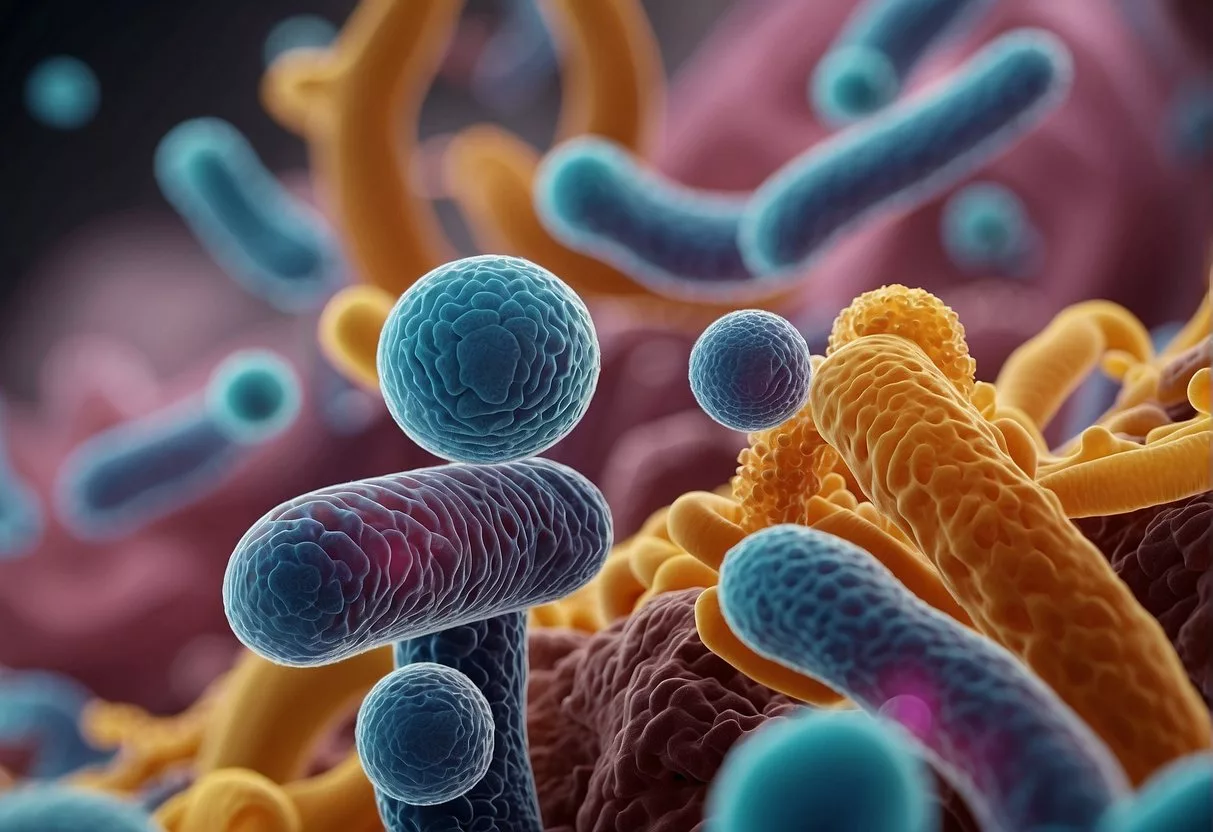
Understanding the synergy between your gut health and overall well-being is essential. The digestive system is not only responsible for the breakdown and absorption of nutrients, but it’s also pivotal in immune function and mental health, thanks to the gut-brain axis.
The Importance Of A Healthy Gut Microbiome
The gut microbiome is an intricate community of microorganisms residing in the digestive system, playing a critical role in one’s health. A balanced microbiome supports the digestive system, aids in the production of certain vitamins, and protects against pathogens.
Imbalances, however, can be linked to numerous health issues ranging from digestive disorders to mood fluctuations.
How Probiotics Contribute To Gut Health
Probiotics are live beneficial bacteria that, when ingested in sufficient amounts, contribute to gut microbiome health by helping to restore the natural balance of gut bacteria.
Fermented foods and supplements provide these probiotics, which can effectively support the digestive process and enhance the immune system.
Alongside probiotics, prebiotics—non-digestible fibers—serve as food for gut bacteria, fostering a nurturing environment for the microbiome to thrive.
Probiotics And Digestion
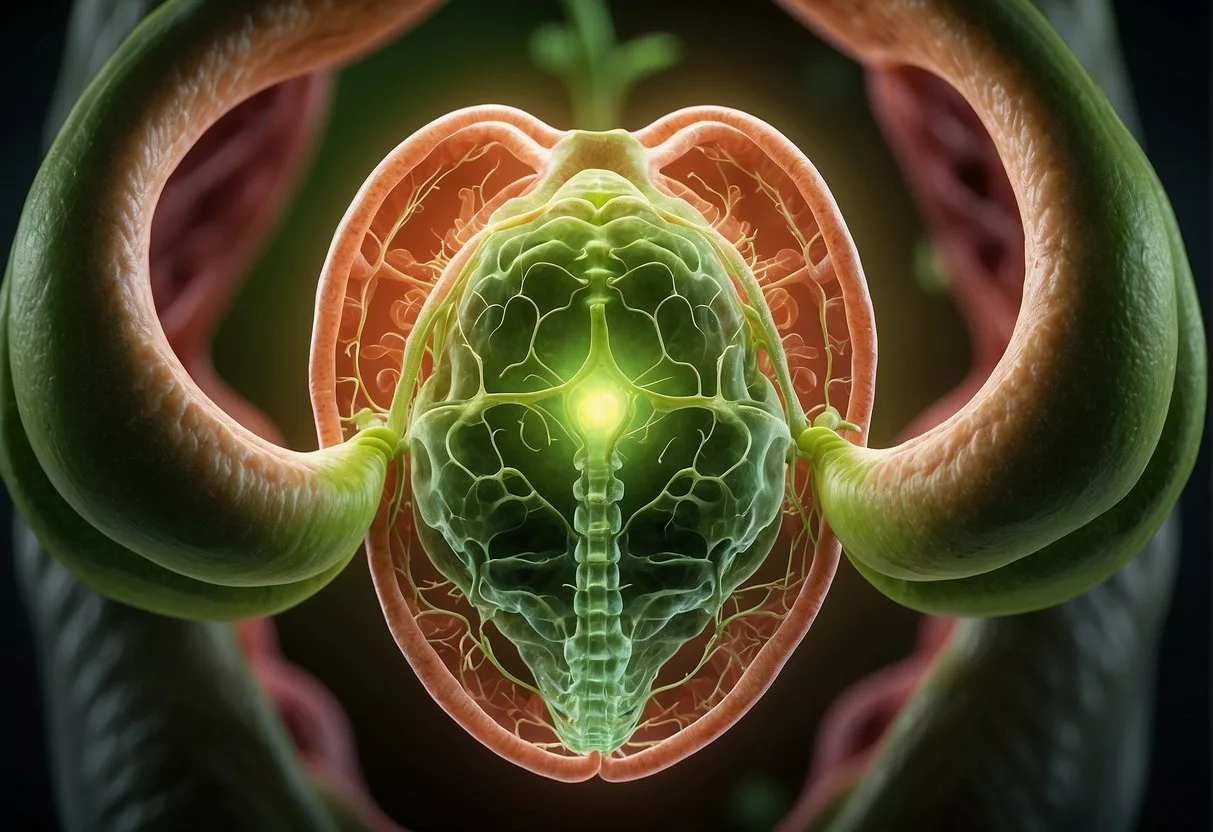
Probiotics are live microorganisms that play a vital role in facilitating healthy digestion by balancing the gut’s microbial environment. This section explores their impact on enhancing digestive function, alleviating common digestive discomforts, and promoting regularity and reducing bloating.
Enhancing Digestive Function
Beneficial microorganisms in probiotics contribute significantly to the digestive process. They assist in breaking down food particles, aiding in the efficient absorption of nutrients.
The presence of these microorganisms can enhance the overall digestive function and lead to optimal gut health.
Relief From Common Digestive Issues
Individuals struggling with digestive issues such as gas, constipation, and diarrhea may find respite through the use of probiotics.
These symptoms are often signs of an imbalance in the gut microbiota.
The regular intake of probiotics can help alleviate these discomforts by combating harmful bacteria and restoring harmony in the digestive system.
Regularity And Bloating
A healthy gut is pivotal for ensuring regular bowel movements.
Probiotics can play a crucial role in lessening bloating and other symptoms of an irritated bowel.
By fostering a balance of beneficial microorganisms, they help maintain a consistent digestive pattern and mitigate feelings of excessive fullness or swelling often associated with bloating.
Physical Health Improvements
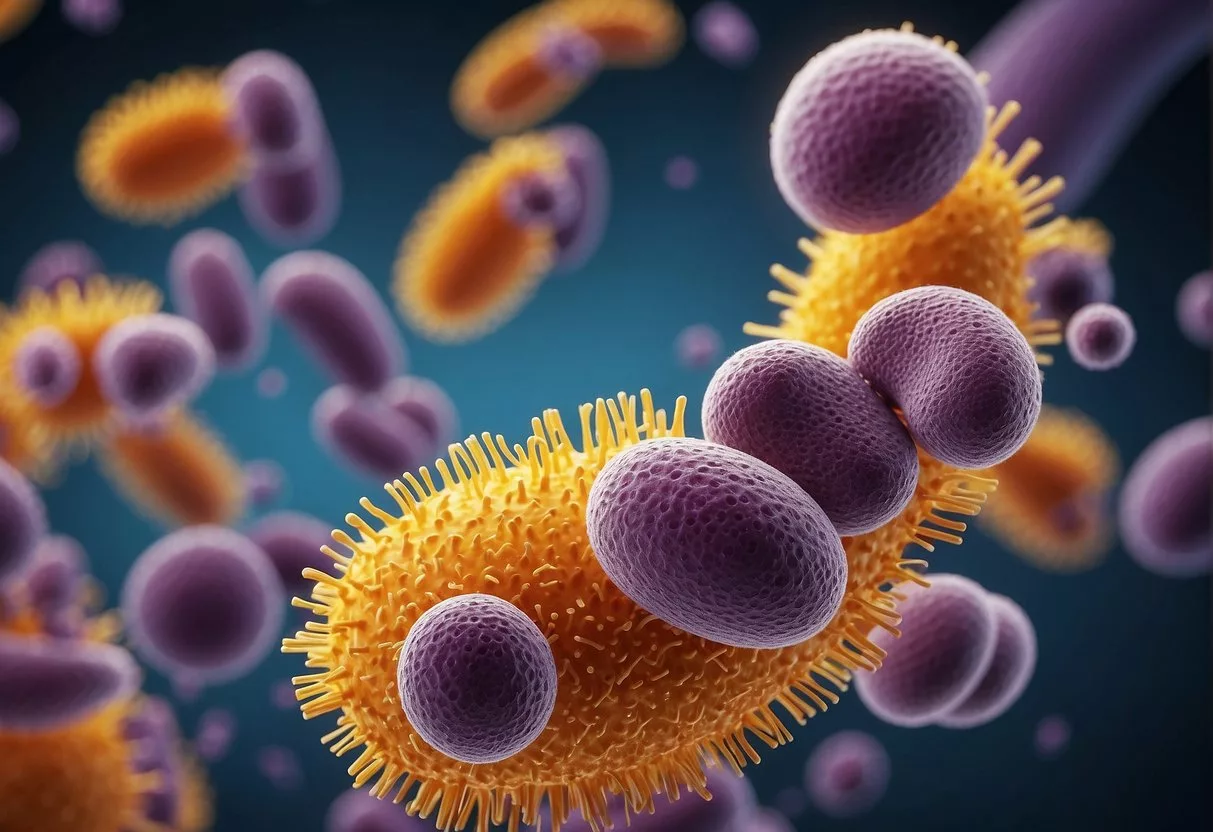
Probiotic supplementation can lead to discernible changes in physical health, manifesting through enhanced immune response, reduced inflammation, and altered metabolic processes. Here is how these changes may become evident.
Boosting Immune Function
Regular intake of probiotics can strengthen the immune system by promoting the growth of beneficial gut flora.
This healthy microbe balance supports the function of immune cells, making the body’s defenses more adept at warding off pathogens.
Research suggests a correlation between probiotics and the increased production of antibodies, further aiding in immune response.
The Impact Of Probiotics On Inflammation And Allergies
Probiotics may play a pivotal role in reducing inflammation and mitigating allergy symptoms.
They can help regulate the body’s inflammatory response by influencing the release of cytokines, which are signaling molecules that mediate and regulate immunity and inflammation.
Specifically, probiotics can encourage the production of anti-inflammatory cytokines while reducing pro-inflammatory ones, potentially providing relief from inflammatory and allergic conditions.
Probiotics’ Role In Metabolism And Weight Management
In the context of metabolism and weight management, probiotics have been associated with increased production of short-chain fatty acids (SCFAs) that may aid in energy harvest from the diet.
These SCFAs can influence metabolic health, potentially aiding in weight loss and preventing digestive problems.
By improving gut health, probiotics might contribute to a more efficient metabolic function, though individual results can vary widely.
Mental And Emotional Well-Being

Recognizing the signs that probiotics are working can often be seen through improved mental and emotional well-being.
Effective probiotics may contribute to better stress management, enhanced mood, and cognitive function.
They may also play a role in sleep quality, which is closely tied to mental health.
Stress, Mood, And Cognition
Probiotics have been linked to the production of various neurotransmitters, such as serotonin and GABA (gamma-aminobutyric acid). These are essential for regulating mood and anxiety.
Studies suggest that a balanced gut microbiota can lead to an improved mood and reduced levels of stress. Additionally, there may be benefits to cognitive processes, including thinking, memory, and energy levels.
For instance, Alzheimer’s patients consuming probiotics showed better scores in cognitive impairment tests, indicating potential benefits for brain health.
Sleep Quality And Mental Health Impacts
Probiotics also have an influence on sleep quality, which impacts various aspects of mental health, including cognition and depression. The gut-brain connection—the communication pathway between the gastrointestinal tract and the nervous system—has been found to extend to our sleep patterns.
An effective probiotic regimen could contribute to a general sense of well-being and better sleep, with potential positive effects on overall mental health. Hormones involved in sleep cycles, such as melatonin, may also be modulated by gut bacteria, further underscoring the relationship between probiotics and sleep.
Recognizing The Signs Of Effective Probiotics

When assessing the effectiveness of probiotics, individuals should look for specific signs ranging from immediate digestive relief to longer-term health benefits. These indicators can provide confidence that the probiotics are having a beneficial impact.
Short-Term And Long-Term Indicators
Short-Term:
- Digestive Health: A noticeable reduction in digestive issues such as bloating and gas can be an initial sign of probiotics beginning to balance the gut microbiome.
- Mood Improvement: Many users report a more stable mood as the gut-brain axis is positively influenced by beneficial microorganisms.
Long-Term:
- Immune System: Over time, an enhanced immune system function might be apparent, with fewer infections and quicker recovery from illnesses.
- Skin Health: Issues like acne, eczema, and rosacea may improve, revealing clearer skin, which often suggests a healthier gut environment.
Visible Changes In Health And Wellness
Health Improvements:
- Energy Levels: Sustained increases in energy levels may be experienced, indicating that the body’s nutrient absorption and overall gut health have improved.
- Gut Health: For those with IBS, long-term use of probiotics can lead to less frequent and less severe flare-ups, thanks to the support of a balanced gut microbiota.
Wellness Observations:
- A clear understanding of unrealistic expectations is important. Not all changes will be immediately noticeable, and some benefits may be subtle or become apparent only over extended use.
- It is also crucial to differentiate between normal body variations and the actual changes probiotics bring to gauge their effectiveness accurately.
Choosing The Right Probiotic Supplements
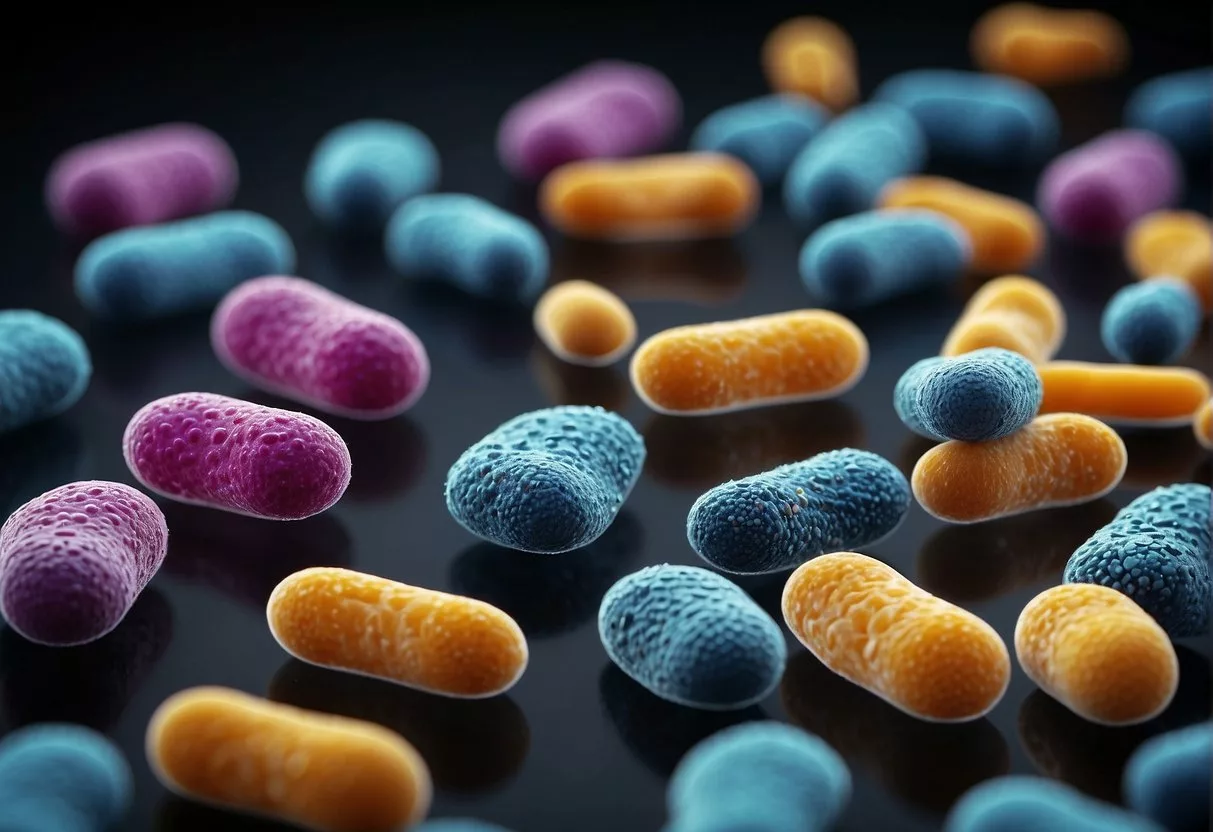
Choosing the right probiotic supplement is crucial for supporting digestive health and ensuring you receive the intended benefits. Factors such as CFUs and probiotic diversity play significant roles in their efficacy.
Evaluating Probiotic Supplements
When evaluating probiotic supplements, it’s imperative to look for the genus, species, and strain of the beneficial bacteria listed. Probiotics should contain effective lactobacillus strains that are specifically suited for their intended health benefit.
For instance, Lactobacillus rhamnosus GG has been widely studied and is known for its positive impact on gastrointestinal health. Labels should also clearly indicate the expiration date and proper storage conditions to maintain potency.
It’s often recommended to select supplements with a transparent list of ingredients and devoid of unnecessary fillers or artificial additives. Supplements should be backed by clinical research, ensuring the contained strains have been tested for their health benefits.
Understanding CFUs And Probiotic Diversity
CFUs, or colony-forming units, measure the amount of live and viable bacteria in a probiotic. While a higher CFU count may seem better, the quality and resilience of those bacteria are more important. Some high-quality probiotics may have CFUs ranging from 5 to 100 billion.
Diversity in probiotic species is also vital as different strains offer various health benefits. For example, Bifidobacteria may help regulate the immune system, while Lactobacilli can aid in nutrient absorption and improve digestive health.
A supplement with a broader range of strains may offer more comprehensive support for your gut microbiota, but one should ensure that the included strains provide targeted benefits as part of their diet or health regimen.
Consulting healthcare professionals can provide insights into the most suitable types of probiotic pills or supplements for individual needs.
Dietary And Lifestyle Considerations

Probiotic efficacy can be significantly influenced by one’s diet and lifestyle habits. Integrating certain foods and making lifestyle adjustments can create an environment where probiotics thrive, enhancing gut health and overall well-being.
Foods That Enhance Probiotic Benefits
Consuming a variety of fermented foods is key to maximizing probiotic benefits. Foods such as yogurt, kimchi, and kombucha are rich in live cultures that can bolster the bacterial profile of the gut.
Additionally, these foods often contain essential vitamins including various B vitamins, which play a crucial role in energy metabolism and overall health. To further support the probiotics, incorporating prebiotic foods—which act as food for the beneficial bacteria—is critical. These include:
- High-fiber fruits and vegetables
- Whole grains
- Legumes
Limiting foods high in sugar is also vital as sugar can feed harmful bacteria and yeast, potentially negating probiotic benefits and exacerbating sugar cravings.
Lifestyle Changes To Support Probiotic Function
Lifestyle plays a substantial role in the effectiveness of probiotics. Regular physical activity and adequate sleep are cornerstones of a lifestyle that supports gut health.
Exercise can improve gut mobility and has been shown to positively affect the balance of gut bacteria. On the other hand, proper sleep is essential for the repair and maintenance of the gastrointestinal system.
Adopting a stress-reduction routine through mindfulness, yoga, or meditation can also have a positive impact on gut health. Chronic stress has been linked to gut dysbiosis, which is an imbalance in the gut bacteria. Reducing stress levels can create a more hospitable environment for probiotics to flourish.
Potential Side Effects And How To Mitigate Them
When introducing probiotics into one’s diet, an individual may experience certain side effects due to the changes occurring in the gut’s microbial environment. Understanding these symptoms and their management strategies is crucial for maintaining a balanced gut microbiota.
Common Probiotic-Induced Symptoms
Symptoms:
- Bloating
- Gas
- Diarrhea
These are often a result of the good bacteria combating the bad bacteria and may lead to a temporary imbalance, known as dysbiosis. In some cases, particularly when the overgrowth of bacteria occurs in the small intestine, a condition called Small Intestinal Bacterial Overgrowth (SIBO) can develop. This could exacerbate symptoms like bloating and gas.
Mitigation Strategies:
- Start Slowly: Gradually introduce probiotics to allow the body to adjust.
- Hydration: Increase water intake to help flush out toxins.
- Diet Adjustment: Temporarily reduce intake of foods that cause bloating.
Managing Gut Microbial Balance
To manage the gut microbial balance, it is important to monitor the body’s response to probiotics. If symptoms like diarrhea persist, reducing the dose or discontinuing can be considered. Identification and treatment of underlying conditions such as SIBO should be undertaken with the guidance of a healthcare provider.
Adjustments:
- Probiotic Strain Variation: Switching to a different probiotic strain can be beneficial.
- Prebiotics: Incorporating prebiotics can support the growth of good bacteria.
Integrating Probiotics Into Your Health Regimen
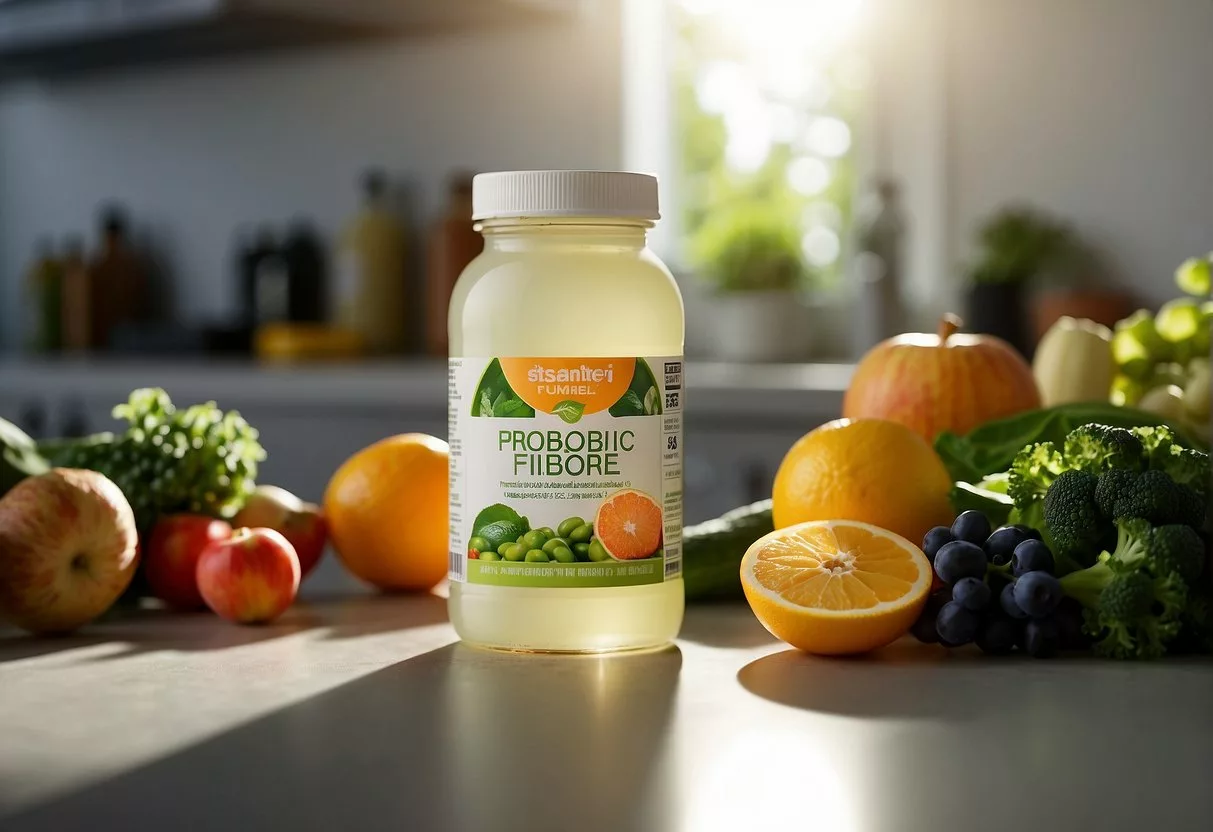
Incorporating probiotics into a daily health routine can contribute to a balanced gut microbiome, which is integral to overall health, including the immune system and cognitive function. It’s essential to consider timing and potential interactions with other supplements or medications.
When To Take Probiotics
Probiotics are most effective when taken at a consistent time each day. They should ideally be consumed on an empty stomach or just before a meal to maximize the survival of the microorganisms through the acidic environment of the stomach.
- Morning Routine: Taking probiotics in the morning before breakfast can kick-start the digestive system.
- Antibiotic Usage: When on antibiotics, separate the intake of probiotics by at least two hours to avoid a counteractive effect. Antibiotics can kill both harmful and beneficial bacteria.
Combining Probiotics With Other Medications
Probiotics can generally be taken alongside other medications, but it’s advisable to consult with a healthcare provider, especially when dealing with critical health concerns.
- Immune Modulators: Some probiotic strains might overstimulate the immune system for individuals on immune-modulating drugs.
- Blood Sugar Control: Probiotics might have an impact on blood sugar levels, so those on diabetes medication should monitor their blood sugar levels closely.
Probiotics are considered supplements, not medications, and have different guidelines and regulations. Combining a healthy diet with probiotic supplementation can contribute to reducing gut dysbiosis and enhancing immunity.
Frequently Asked Questions
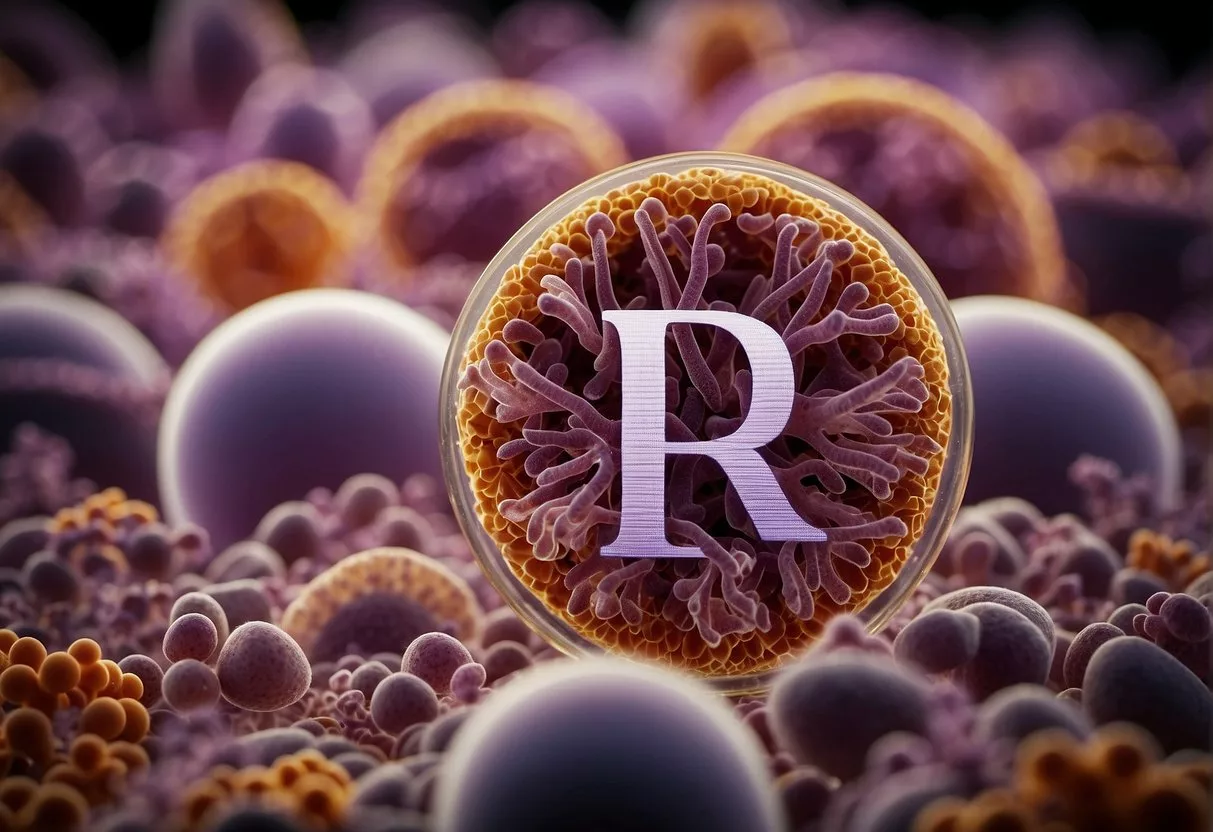
When gauging the effectiveness of probiotics, look for changes in digestive health and overall well-being.
The time it takes to notice benefits and the signs of improved digestion can vary.
Some individuals might experience mild side effects, while specific symptoms can help distinguish between detox reactions and adverse effects.
What are common indicators that probiotics are effective?
Indicators that probiotics are effective include more regular bowel movements, less bloating, and improved immune function.
Consistent use of probiotics might also lead to increased energy due to better nutrient absorption.
How long does it typically take to experience the benefits of probiotics?
Typically, probiotics start to show signs of effectiveness after 2-3 weeks of consistent use. Some individuals might need up to 4-8 weeks, especially when starting from a state of significant digestive imbalance.
What signs should you look for to confirm probiotics are benefiting your digestion?
Signs of improved digestion from probiotics include more regular bowel movements and less bloating.
An increase in digestive enzyme activity, which aids in nutrient breakdown, can also be a reliable sign of probiotic effectiveness.
Can infants show distinct signs that probiotics are beneficial?
Infants may show signs such as reduced frequency of colic, fewer episodes of constipation or diarrhea, and perhaps a reduction in skin irritations like eczema, as evidence of the benefits of probiotics.
What are the possible side effects when starting a probiotic regimen?
When starting probiotics, some individuals may experience mild digestive discomfort, gas, or bloating.
These are often temporary and can indicate the body’s adjustment to new beneficial bacteria in the gut microbiome.
How can you distinguish between detox symptoms and adverse reactions to probiotics?
Detox symptoms might include temporary bloating or changes in bowel movements. These typically resolve as the body acclimates to the probiotics. Adverse reactions often persist or escalate. This signals that the probiotic might not be suitable for the individual.